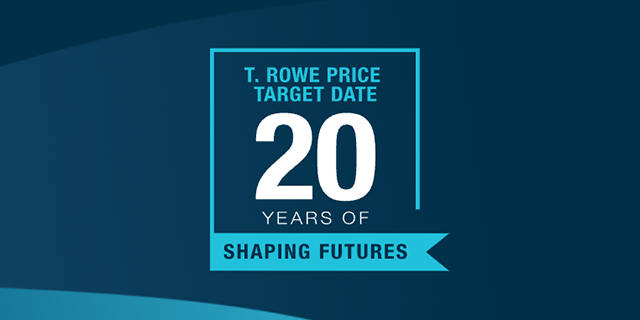
Assessing New Retirees
To be a force for change, we must first understand the mind-sets and challenges of participants. Explore our thought leadership below to gain insights on the experiences and motivations of today's workers and retirees.
A Look at How New Retirees Are Making It Work.
How are new retirees managing in retirement? Research by T. Rowe Price suggests they're faring quite well. In fact, many 401(k) participants are transitioning with considerable assets and high satisfaction.
A quantitative, national study, First Look: Assessing the New Retiree Experience, offers compelling data on the spending behaviors and experiences of people who have been part of the 401(k) system and are now--on average--about three years into retirement. While the research reflects a diverse range of investors, from ages under 50 to 75 and older, the majority are baby boomers 50 to 68 years old.
This context is critical for plan sponsors and advisors: It provides valuable perspective on the early years of retirement and, in particular, the transition to retirement based on a unique 401(k)-affiliated sample.
Summary: A Developing Positive Picture
Overall, the research shows a positive picture of retirement, especially in terms of the adjustments that retirees have made at this early stage. They are moving confidently into retirement and managing their spending according to their income:
- Many enter retirement with substantial household assets ($1,303,000 average/$473,000 median).
- Almost half (48%) have a withdrawal plan, and they are withdrawing a median of 4% of their portfolio.
- 80% say they track expenses carefully, and only three in 10 are surprised by how hard it is to live without their preretirement paycheck.
Attitudinally, these individuals are in a good place. Nearly 90% of survey respondents say they are satisfied with their retirement so far, and almost three-quarters feel they are better off financially than their parents were at the same age. However, single households, particularly female-headed, report significant challenges.
Article Resources
Top Findings: Five Insights You Should Know
Here are five key findings from the First Look research that show that new retirees who have saved in 401(k)s are making the first years of retirement work for them. According to the study:

New retirees are living on less.
- Retirees are living on an average of 66% of preretirement income.
- Those with a withdrawal plan draw a median of 4% of their balance.
- 85% say they don't have to spend as much in retirement to be satisfied.

They are flexible. Adapting to change.
- 89% have found they can adjust their lifestyle according to income.
- 78% reduce spending if spending exceeds their income.

The "new retirement" includes employment.
- 21% are working.
- 14% are seeking work.
- 65% are fully retired.

Many follow basic rules of thumb.
- 63% stick to a spending budget.
- 33% maintain an emergency fund.
- 52% have a financial advisor.

Overall, they have a positive outlook.
- 89% of retirees are satisfied with retirement so far.
- 78% feel on track to meet their financial goals.
- 74% feel better off than their parents were at their age.
Conclusions: Retirees Are Making It Work
"While we know there are people with little or no retirement savings, our sample indicates that many who saved in a 401(k) plan are entering retirement with considerable assets," said Anne Coveney, vice president, Client and Market Insights, T. Rowe Price Retirement Plan Services, Inc. "What's more, we are also seeing some evidence of financial discipline in budgeting and spending."
The analysis captures a moment in time--many new retirees have yet to tap their 401(k) balances and use Social Security as their main source of income. Nonetheless, the study results send a powerful message to plan sponsors, advisors, and especially those individuals still preparing for retirement.
"New retirees are making retirement work--it is possible to save in a 401(k) plan and enter retirement in a positive state," Coveney said.
Methodology: A Look Behind the Study
T. Rowe Price initiated First Look: Assessing the New Retiree Experience, a quantitative study, conducted independently by Brightwork Partners LLC.
Interviewees included 1,030 working adults age 50 or over who are currently contributing to a 401(k) plan, or are eligible to contribute, and have a balance with their current employer of $1,000 or more and 1,507 adults who have retired in the past one to five years and have a Rollover IRA or a balance remaining in a 401(k) plan.
Interviewing was conducted between February 19, 2014 and March 3, 2014. Findings in both samples are subject to a margin of error of just under 3%.
Contact your T. Rowe Price representative to find out how we can take your plan to the next level.






